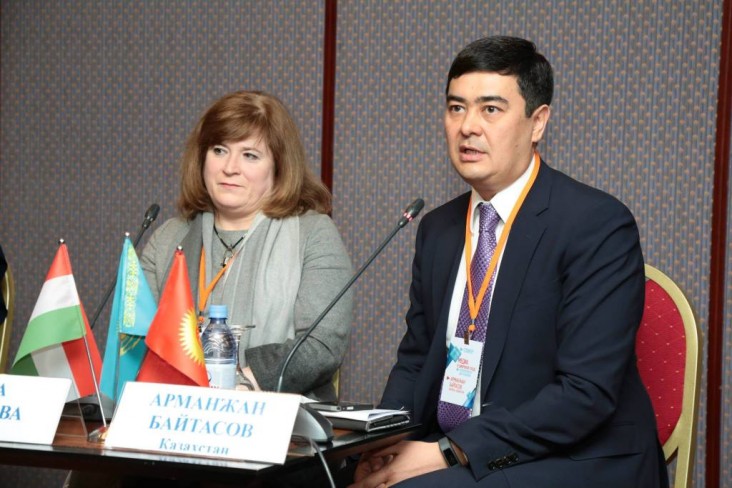
August 2015—Amid the backdrop of a recession in Russia, local media in Central Asia are hungry for tools and strategies that will allow them to operate and even thrive in a less-than-optimal advertising market and under difficult financial conditions.
Regional media agencies face a range of other challenges including insufficient strategic and financial planning skills, trouble retaining professional staff due to low salaries, and lack of reliable audience metrics to attract advertisers.
In addition, the 2015 transition from analog to digital broadcasting remains problematic for most media outlets in the region. Many of them cannot afford to purchase new equipment to produce and broadcast digital content, or to pay the fees to access the digital broadcasting spectrum. In some cases, legal and regulatory obstacles prevent stations from gaining access to broadcasting frequencies.
To discuss these and other burning issues, over 100 media professionals from Tajikistan, Kyrgyzstan, Kazakhstan, Russia and South Korea gathered at a regional media conference in Almaty, Kazakhstan, in March. The conference was funded by USAID’s Access to Information (A2I) program and supported by a number of local and international partners.
The conference allowed regional media managers to exchange successful solutions to shared problems. For example, Anastasia Snegireva from AltaPress in Barnaul, Russia, gave a presentation about content monetization and other services that can provide additional revenue beyond advertising. Afterwards, several media managers expressed interest in sending their teams on a study tour to AltaPress.
“I appreciated the chance to work closely with my regional colleagues and got ideas for exchanging content more actively and further developing our website,” said one conference participant.
Several media companies agreed to jointly produce and exchange content. Tajikistan’s Avesta information agency from Dushanbe and its Tiroz TV and radio station from Khudjant started exchanging audio news packages in April, just one month after the conference. They are now drafting a year-long cooperation agreement to strengthen their commitment to the new partnership.
In Kyrgyzstan, four new media outlets joined the content exchange initiative managed by USAID’s A2I program. The initiative allows media outlets to expand their programming without paying additional fees by broadcasting content produced by other A2I partners.
The conference also inspired media managers to partner to defend their legal interests. In April, representatives of Tajikistan’s TV, radio and production studios, many of whom met at the conference, convened to advocate for the abolishment of a law requiring licenses for audiovisual content production.
The onerous and time-consuming process of getting this license discourages many would-be content producers from moving forward and stifles development of Tajikistan’s media sector. The managers prepared a joint letter for the Ministry of Economy, Trade and Development regarding this issue. If approved by the ministry, the arguments presented in the letter may be considered by Parliament.
Finally, conference participants learned about NewReporter, A2I’s online multilanguage education hub for media professionals that includes grant announcements and news for regional media. Since the conference, the website has become a popular platform with articles such as “A strong brand as a way of survival,” “The digitized image of the world and the media of the future,” and “The transition to digital broadcasting in Central Asia: challenges and prospects.”
The conference will take place on an annual basis until the end of the A2I program, which runs from 2014 to 2017. Implemented by Internews, the program increases access to quality and timely information in order to keep government institutions accountable to citizens in Central Asia.
LINKS







Comment
Make a general inquiry or suggest an improvement.